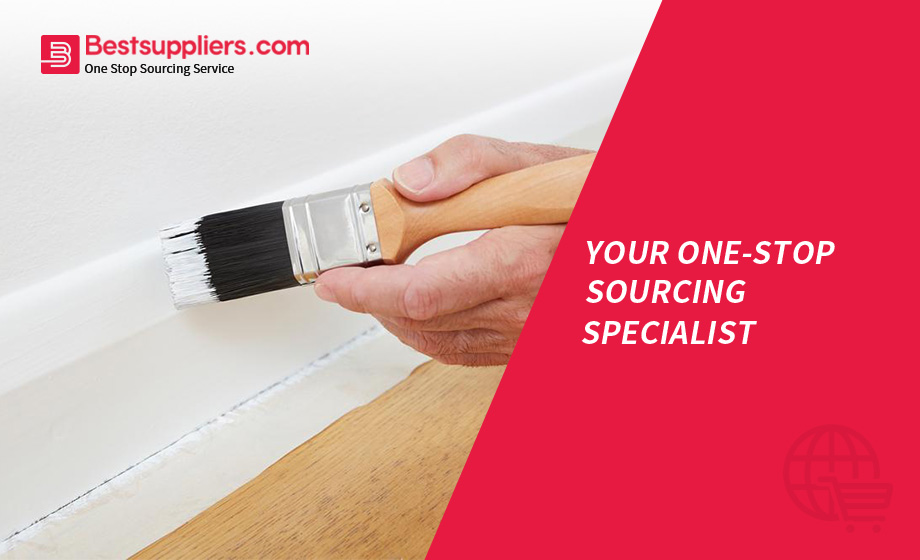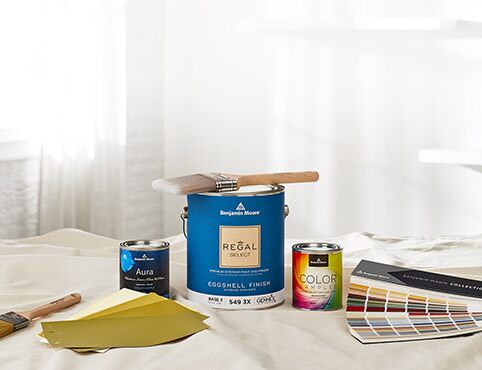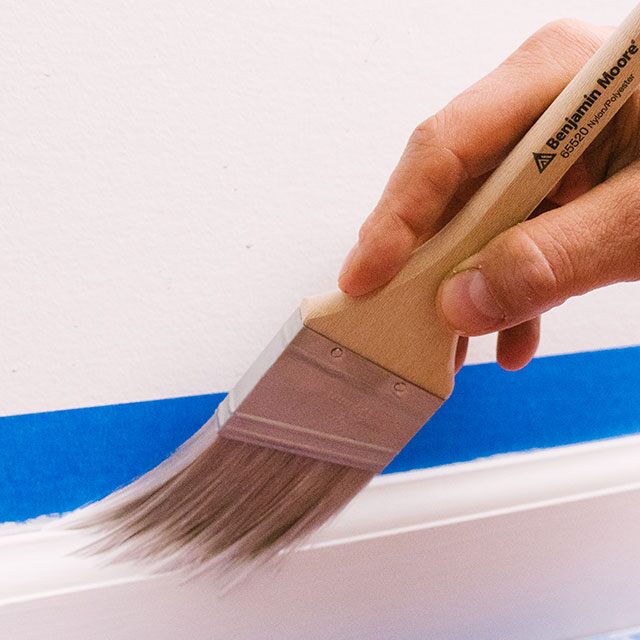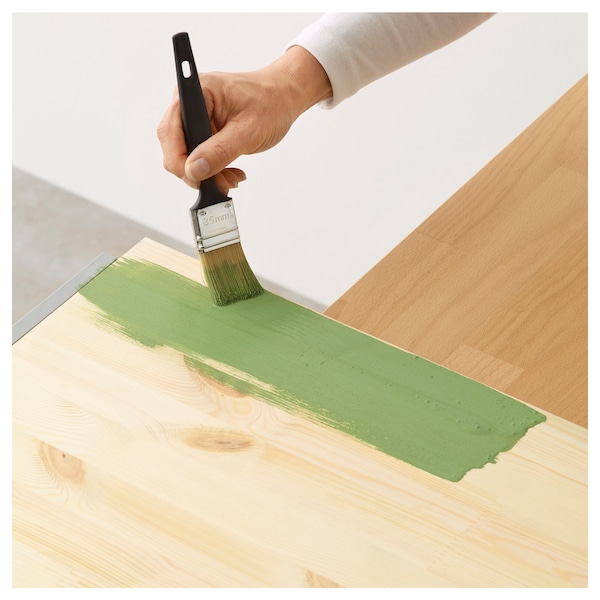8 Things to Consider When Buying Paint Brushes

Introduction
Painting is an art form that's been around for thousands of years, and it's still as popular today as it was in ancient Egypt or Renaissance-era Italy. Whether you're a professional artist or just want to try your hand at painting, there are many factors to consider when buying Professional paintbrushes. A good brush can make all the difference in how easy your project is and whether it turns out to look professional or amateurish. In this professional paint brush buying guide No matter if you're looking for synthetic or natural bristles, round or flat heads—and no matter what kind of paint project you have planned—there's something on this list for every budget!
Shape of the Paint Brush

You will want to use a flat or angular paint brush for flat surfaces, as these edges allow you to get into corners and small spaces.
A round or angular paint brush works best for edges and corners because it can provide broad strokes or finer detail depending on how it's used.
Pointed and small brushes are great for fine details, while broad strokes are best executed with flat ones.
Bristles of the Paint Brush
One of the most important considerations when buying paintbrushes is the bristles. Brushes can be made with natural or synthetic bristles, and each has its own advantages and disadvantages. Natural bristles are more expensive than synthetic ones because they hold more paint and last longer, but they’re also a little bit harder to find. Synthetic brushes are easier to find and cheaper than natural ones, but they tend to lose their shape quickly and aren’t as effective at holding onto thick liquids like oil-based paints, which means that you might have to buy several different kinds of brush if you use multiple types of paint on your projects.
If you're using acrylics (which are watery) or other thin liquids in your painting project, then a synthetic brush would be an excellent choice for you because it won't soak up all your paint before you can get it on the canvas! Many artists prefer these types over their natural counterparts due to how easy they are
How Many Paint Brushes You Need
Knowing how many paint brushes you will need depends on several factors, including whether you are buying them as a beginner or professional painter and whether they're intended for specific uses.
While most beginners start with just one or two, professionals can end up with dozens tucked away in their tool kit. While it might seem like overkill to have so many options at your disposal, different types of brushes have different uses that require different handling characteristics (and therefore require different materials). For example, if you're going to be painting indoors on drywall surfaces and other nonporous surfaces (such as fabrics), then having some high-quality flat brushes will be helpful for achieving uniform coverage without running into drips or runs.
How to Select the Right Size of the Paint Brush
A big part of choosing a paintbrush is the size. The size of your brush should depend on the size of the area you're covering, and if you're doing detailed work or not. If you're painting a small area, it'll be easier to use a smaller brush since they have more precision. A large surface like a wall can be covered faster with larger brushes that have less detail, but aren't as precise as smaller ones.
A general rule when buying brushes is: to pick up each individual one and see how well it fits in your hand—if you find yourself cradling it like an infant, then it might not be for you! You should also take into consideration what kind of surface(s) would best suit the different types of brushes available—for example, if someone has delicate hands then they may want something with finer bristles whereas someone else may prefer something else entirely!
How to Buy Paint Brushes for Special Techniques

When you're working on a project that requires precision, the best paintbrush for you is one with a longer handle. A brush with a long handle will allow you to get into tight spaces and make precise lines without having to worry about smearing your work.
When painting ceilings or walls (or any surface where the paint might drip), using a brush with longer bristles can be very helpful in keeping drips and splatters off of your clothes, shoes, and skin—especially if you tend to lose control of your hands when doing something new!
How to Choose Quality Paint Brushes
When you're buying paintbrushes, it's important to consider several factors. Here are the ones that will help you get the best results:
Make sure they're made with natural hair. Natural bristle paint brushes tend to last longer than synthetics, and they produce a more consistent finish in your work since they hold on to more pigment than their synthetic counterparts do.
Look for well-made handles. The handle is an important part of any brush because it's what connects all the components together—so make sure yours is well-balanced (i.e., not too heavy or too light) and securely attached before purchasing it!
Check for tightly packed bristles when inspecting your new purchase at home or in person so that there aren't any gaps between them; this helps prevent paint from getting trapped where it shouldn't be during application!
When you're just getting started, some paintbrushes are better than others. Flat brushes are good for large areas of flat color or texture, while round brushes work well for detail work. Filbert brushes can be used both ways since they have a flat side and a rounded one. A fan brush is good for painting the edges of leaves or feathers, while liner brushes excel in delicate line art (like calligraphy). A mop brush is useful when you want to apply paint to an entire surface smoothly without streaks or unevenness (such as when covering wooden furniture with primer).
BESTSUPPLIERS.COM is a global leading professional paint brushes wholesale platform, where you will have a variety of options to find the best paint brushes for your project, at BESTSUPPLIERS.COM we make available a range of paint brush sizes and types, whether you are a beginner or an experienced user you can always get the right brushes for you.
Importance of a Good Paint Brush

A good paintbrush will make it easier to paint and ensure the painting looks its best. A bad one, on the other hand, can get in your way and make you spend more money than you need to. The following are some things to consider about choosing a paintbrush:
Your choice of paintbrush will affect how easy it is to paint. If you want your painting experience to be smooth sailing from start to finish, then it's important for you to find the right tool for the job. A high-quality brush will glide over surfaces with ease and allow you complete control over what goes onto them without adding too much or too little coverage or leaving streaks behind as you go along your way.
Your choice of paintbrush will affect how your finished product looks when all is said and done. If there's no such thing as perfectionism in art then there definitely shouldn't be any at all when considering what type of brush might work best for each individual project! This means that even if someone else has already used theirs before yours then chances are those same effects won't necessarily apply here either (unless they're made specifically by design).
Conclusion
With so many paintbrushes available to choose from, it can be hard to know what's best for your project. We know that you want to get the job done with as little hassle as possible, so we've provided a few tips on what to look for when buying paintbrushes. For more details, please contact us here!

